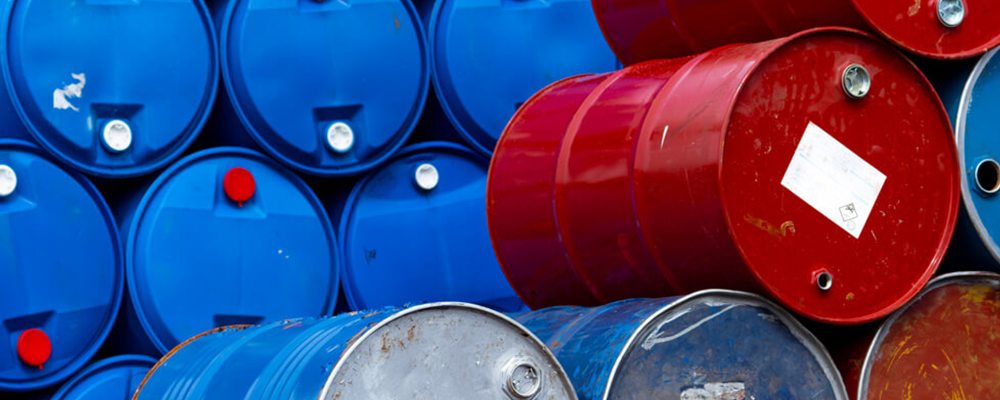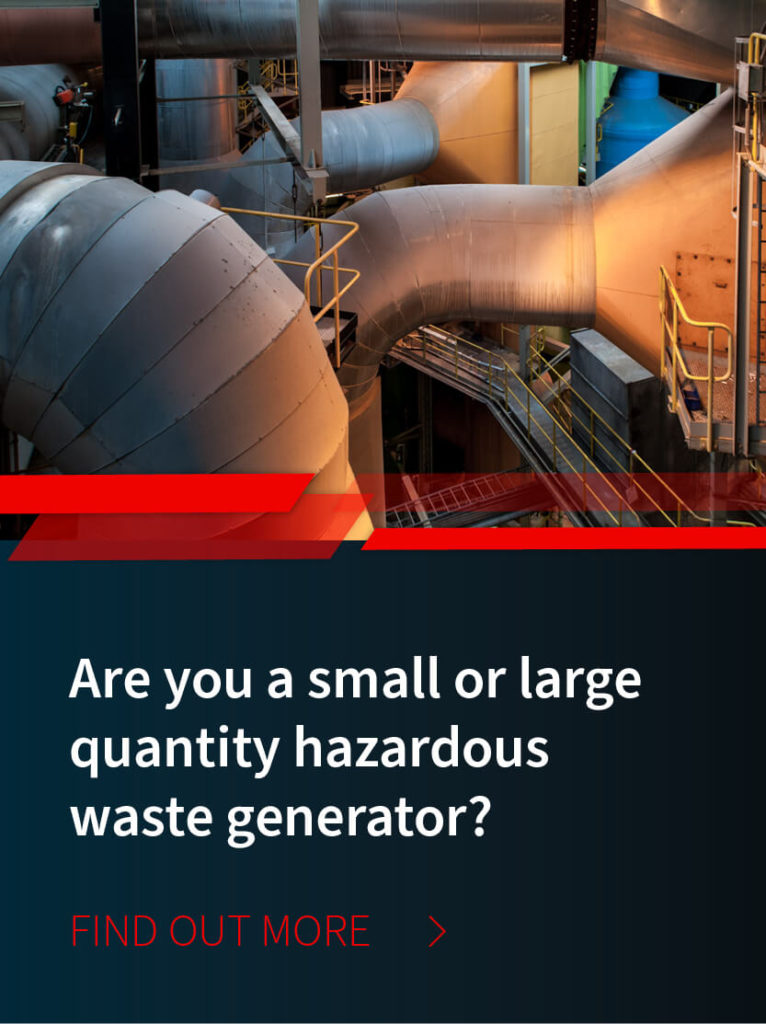
/ IN THIS BLOG
With over one billion tons of municipal solid waste generated globally each year, industrial waste management plays a crucial role in environmental sustainability and regulatory compliance. Mismanagement of hazardous waste can lead to pollution, fines, and serious health risks. That’s why businesses must implement strategic waste disposal plans that comply with EPA regulations while maintaining workplace safety.
If you manage industrial waste, understanding key waste management procedures can help streamline compliance, reduce risk, and improve operational efficiency.
01 / Step 1: Identifying Your Industrial Waste
The first step in effective waste management is identifying the type of waste your facility generates. The EPA classifies hazardous waste into four categories based on characteristics:
Ignitability (e.g., solvents, alcohols, oils)
Corrosiveness (e.g., acids, rust removers)
Reactivity (e.g., explosive or highly reactive chemicals)
Toxicity (e.g., lead, mercury, pesticides)
Common hazardous industrial waste includes:
Manufacturing waste: solvents, paints, coatings, and heavy metals
Automotive waste: used oils, antifreeze, and battery acids
Construction debris: asbestos, treated wood, and contaminated soil
Laboratory waste: chemical reagents, expired pharmaceuticals, and mercury
For a complete list, refer to 40 CFR Part 261, which details all hazardous materials under RCRA regulations.
02 / Step 2: Determining Your Generator Category
Your waste generator category is determined by the amount of hazardous waste you produce per month:
| Category | Monthly Waste Production | Regulatory Requirements |
|---|---|---|
| Very Small Quantity Generator (VSQG) | <220 lbs | Minimal EPA oversight |
| Small Quantity Generator (SQG) | 220–2,200 lbs | Detailed record-keeping, proper labeling |
| Large Quantity Generator (LQG) | >2,200 lbs | Strict EPA tracking, manifesting, and reporting |
Generators must track all waste stored onsite and ensure proper disposal timelines are followed. Some waste types, like universal waste (batteries, bulbs, pesticides) and used oil, have specific exemption rules.
03 / Step 3: Managing Waste Onsite
Proper onsite waste storage is critical for both compliance and safety. Facilities must:
Use EPA-approved waste containers labeled with hazardous waste details
Store waste in designated areas with proper secondary containment
Adhere to Land Disposal Restrictions (LDRs), ensuring hazardous waste is treated before landfill disposal
Follow Domestic Sewerage Exclusion (DSE) rules if flushing small amounts of waste into municipal sewage systems
Some businesses may qualify for on-site waste treatment or recycling without requiring an additional permit, provided they meet EPA accumulation time limits outlined in 40 CFR regulations.
04 / Step 4: Off-Site Waste Disposal & Transportation
When off-site disposal is required, businesses must use an EPA-certified waste transporter and treatment, storage, or disposal facility (TSDF). Key requirements include:
Full compliance with EPA, DOT, and OSHA regulations
Proper handling, transportation, and disposal of hazardous waste
Reduced risk of workplace accidents and environmental contamination
Streamlined waste reporting and documentation
At MCF Environmental, we bring over 30 years of experience in industrial waste management. From waste identification to off-site disposal, we provide customized waste solutions tailored to your business needs.
Robert Losurdo
President, COO








